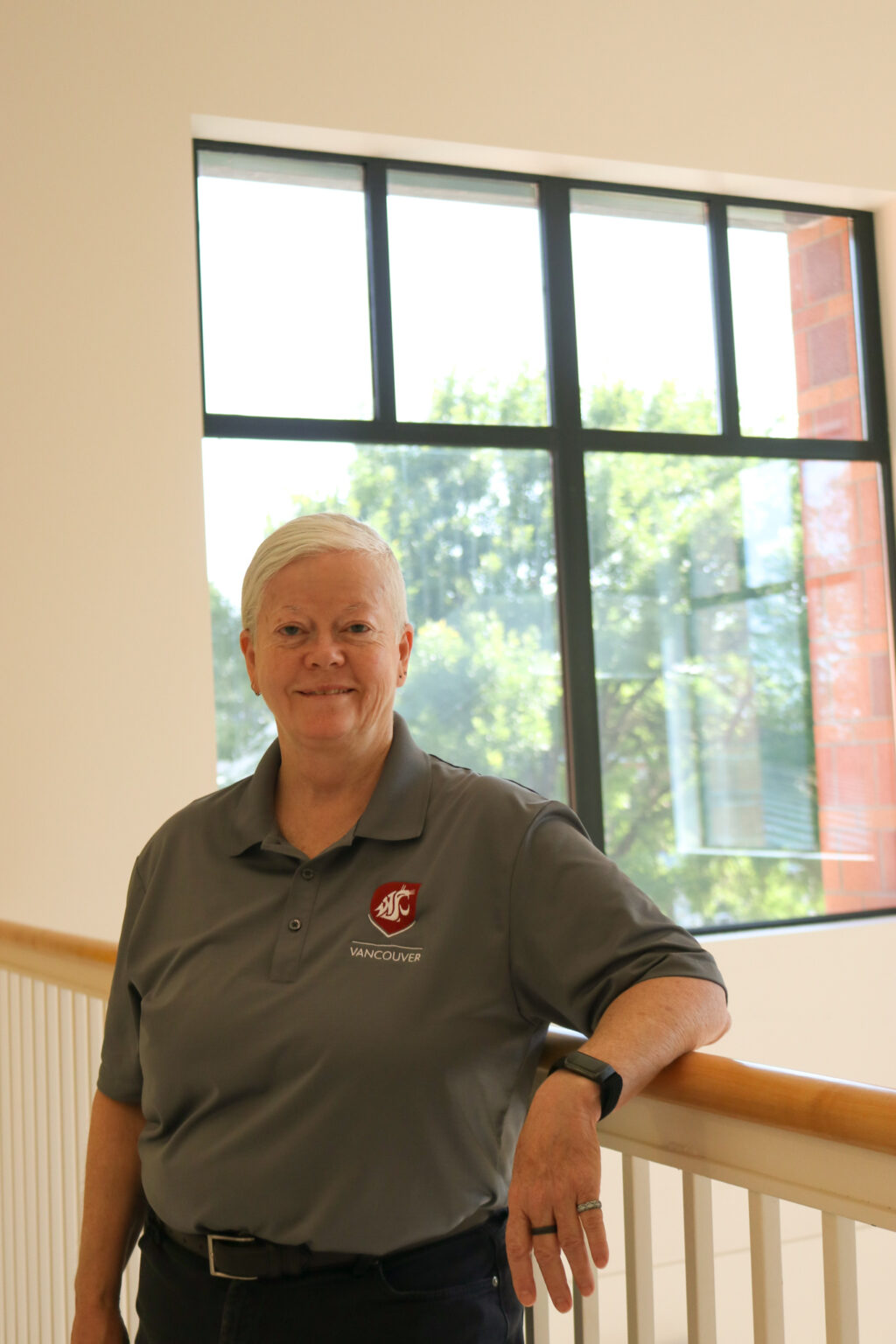WSU Vancouver is fighting a battle that many public higher education institutions across the nation are a part of — declining enrollment. This multi-headed beast has the university’s administration grappling with the reality that COVID-19, cost of tuition and alternative job paths are deterring potential students from attending a four-year university.
Four-year public institutions have seen a 9.4% decrease in enrollment nationwide since before the COVID-19 pandemic, according to the National Student Clearing House Research Center.
“We’ll be fine ultimately, but we’ll just not have the same array of classes available that we do now. We won’t have as many excellent, wonderful faculty for students to interact with.” – Renny Christopher
Vice Chancellor of Academic Affairs, Renny Christopher, said while official numbers for the fall term remain unavailable, enrollment is ultimately down at WSU Vancouver. This is, in part, due to a trend of declining enrollment throughout U.S. college campuses.
“One factor is the huge social changes that we’re seeing as a result of the pandemic. We’ve talked about the great resignation in employment, and something similar seems to be going on in higher education, where people are just not coming, or coming back to college,” Christopher said.
Falling enrollment at local two-year institutions, such as Clark College and Lower Columbia Community College, also contribute to declining enrollment at WSU Vancouver, according to Christopher. Decreased enrollment at two-year institutions results in fewer students transferring to four-year universities like WSU Vancouver.
“[We used to be] 60% transfer students and 40% of students entering as first time freshmen and that proportion has been shifting, so now we’re about 50:50,” Christopher said.
Jacob Boucher, president of the Associated Students of WSU Vancouver, has been watching for other potential causes of falling enrollment. According to Boucher, the fact that many well-paying jobs do not require a college degree could also be a factor.
“Students are looking at how much education costs and thinking, ‘man, why would I go to college for four years and make not much more money than I’d be making if I were to work at Firestone Tires,’ for example,” Boucher said.
Christopher said a potential contributor to falling enrollment could be lacking financial aid knowledge. The Washington College Grant is one program that aids in tuition payment for college or work training for Washington students.
“People who do know about [The Washington College Grant] don’t understand or don’t believe how affordable it makes going to college. I think that we institutions of higher education and the state need to do a lot more about getting the word out,” Christopher said.
Declining enrollment has put so much stress on the university, that many classes were cut fall semester, according to Boucher.This also directly results in the reduction of adjunct faculty members.
“We were projecting that we were going to have a lot more money than we actually do,” Boucher said.
Delaney Talbott, senior anthropology major, found out one of the core requirements for her major, Anthropology 390, was cut due to low enrollment in August. The class was only offered during fall semester and left Talbott scrambling to figure out how she would fulfill this requirement in order to graduate on time.
“I found out [Anthropology 390] was going to be cut because the new head of the department gave me the heads up that it might get canceled and [I would need] this to graduate. Then, significantly later, I got an actual email from the school telling me that was a bit delayed,” Talbott said.
Talbott faced several issues while trying to solve this problem, such as her adviser being out of office and difficulties enrolling in the WSU Global version of the course. On top of everything, Talbott said the time crunch was the most stressful part of the process.
“If I had known this earlier, I could have applied and gotten special permissions earlier. I could have gotten in on the list and not been worrying about it. I was just very stressed. I wanted to
just pay for this next fall semester but I can’t because I don’t know what classes I’m going to be taking,” Talbott said.
Boucher believes that steps can always be taken by administration to protect students from these enrollment-related pitfalls.
“I don’t think that we’ve done any pay cuts to President Kirk Schulz or any of the vice presidents.
They’re still getting paid out the nose. And we’re still paying WSU’s football coach crazy amounts of money. We all pay into the same tuition pool, so even WSU Vancouver students are paying for that football coach.” Boucher said.
The WSU Vancouver administration nonetheless remains hopeful that enrollment will see an increase, with new draws to the campus such as the creation of a Sciences Building and additional degree programs being offered each year.
According to Christopher, the university is going to be focusing on recruitment and retention in order to avoid enrollment dropping even lower. However, classes will continue to be cut and open faculty positions will stay empty if enrollment continues to drop — a catastrophic reality for any university.
“We’ll be fine ultimately, but we’ll just not have the same array of classes available that we do now. We won’t have as many excellent, wonderful faculty for students to interact with,” Christopher said.
This is not the first time WSU Vancouver has faced obstacles created by low enrollment and it likely will not be the last. From major course requirements no longer being offered on campus, to adjunct faculty being let go, students will continue to endure the effects of declining enrollment as it unfolds.

Bethanie is a senior studying environmental and ecosystem science at WSU Vancouver.
